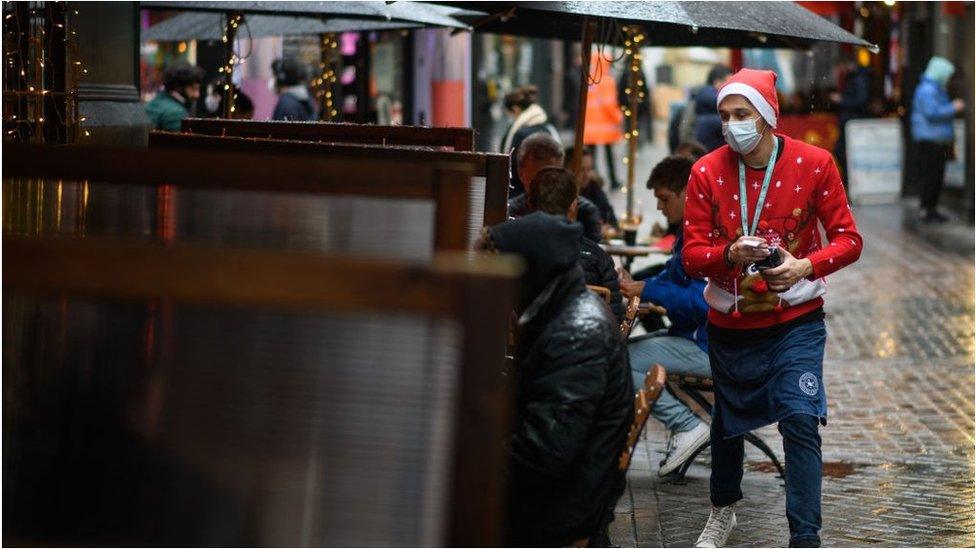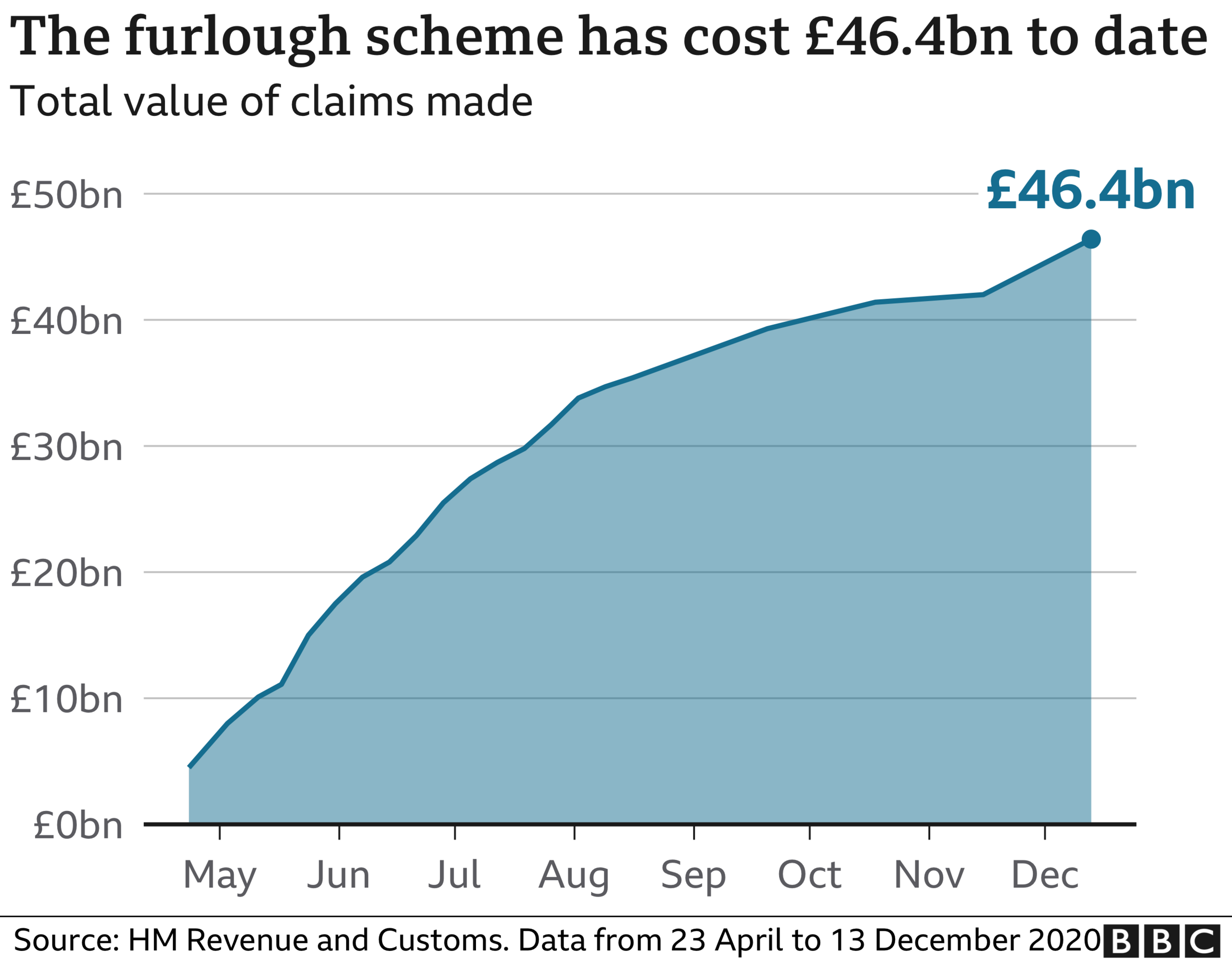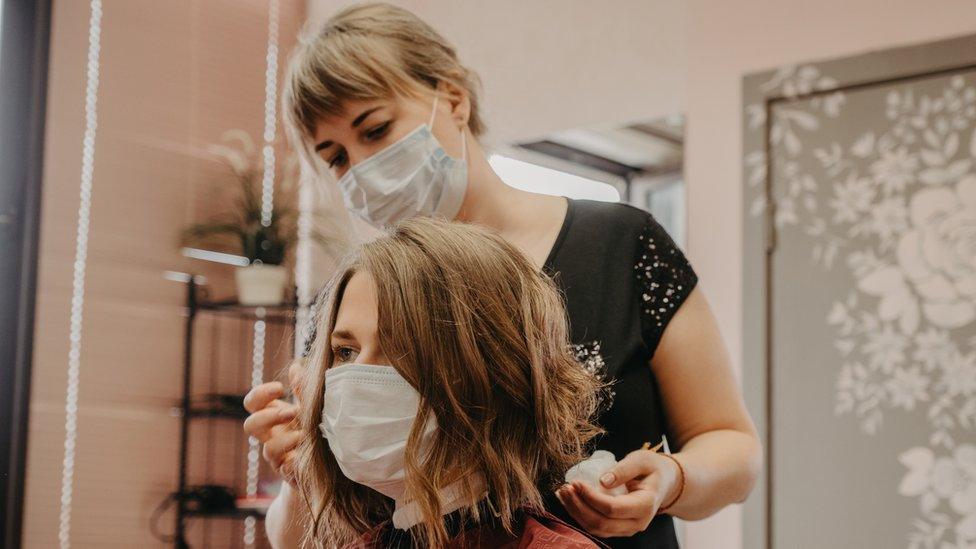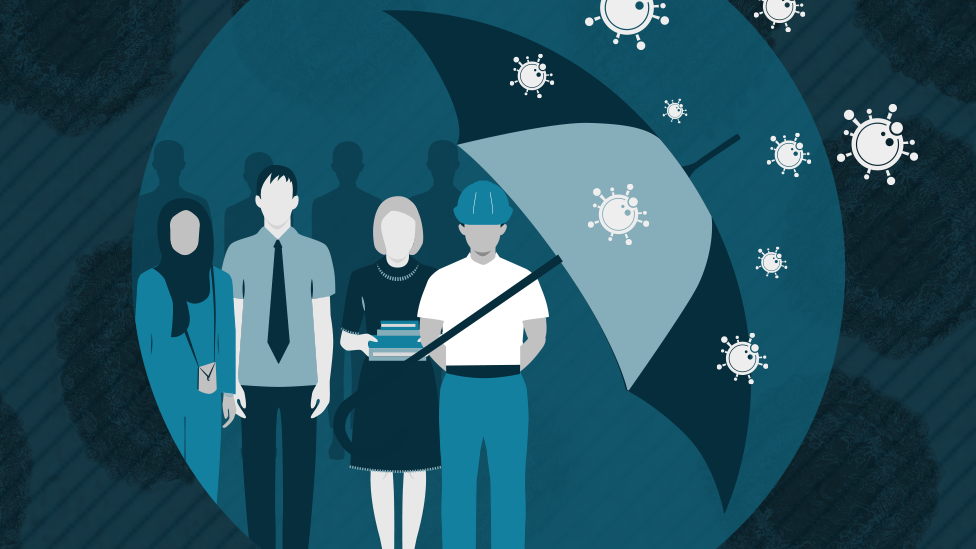Furlough extension buys time as vaccine is rolled out
- Published

The furlough scheme has been extended again.
Chancellor Rishi Sunak is trying to get on top of a problem that is more pressing immediately - the risk of large numbers of people being out of work when it ends - but should ease as the vaccination programme is rolled out.
That programme makes the more optimistic scenarios of the government's official forecasters more likely.
A successful vaccination programme lessens the need for mandatory shutdowns of parts of the economy. And officials hope that the public will have the confidence to return to shops, restaurants and bars after Easter.
In that scenario it is just about possible that the worst forecasts of unemployment could be avoided, as the UK transitions to a more normal economy as furlough ends.
Before that, in March, the chancellor will deliver a recovery Budget and he plans to tell employers exactly what support will replace the furlough scheme.

Firms will have more than the 45 day statutory period to plan staffing levels. This should help avoid unnecessary redundancies.
So that is the hope underlying this extension. The bad news is that it highlights how tough the next three months are expected to be.
The vaccine is excellent news, but some expect people to be more cautious, taking even fewer risks, when a solution is just around the corner.
]This will affect both the willingness of the government to end tiered restrictions and perhaps even to have further national lockdowns.
And it will also mean voluntary social distancing may continue at an even higher level.

It is partly the price to be paid for the extra infections that will inevitably follow the easing of restrictions over Christmas.
The furlough scheme will also cover the period directly after the Brexit transition period ends, when disruption to trade and supply chains is expected whether or not there is a deal.
As important as all of this is the fact that the chancellor has chosen not to reduce the support available through furlough scheme.
The government contribution will now remain at 80% of wage levels up to £2,500 until the end of April.
This is designed to provide certainty to keep payrolls going until the vaccine programme starts to inoculate the economy as well as lives.
It means more borrowed money to support the economy.
But with scientific invention having offered an exit plan at some point in 2021, the chancellor has extended his economic support package to bridge to that point.
Related topics
- Published17 December 2020

- Published30 September 2021

